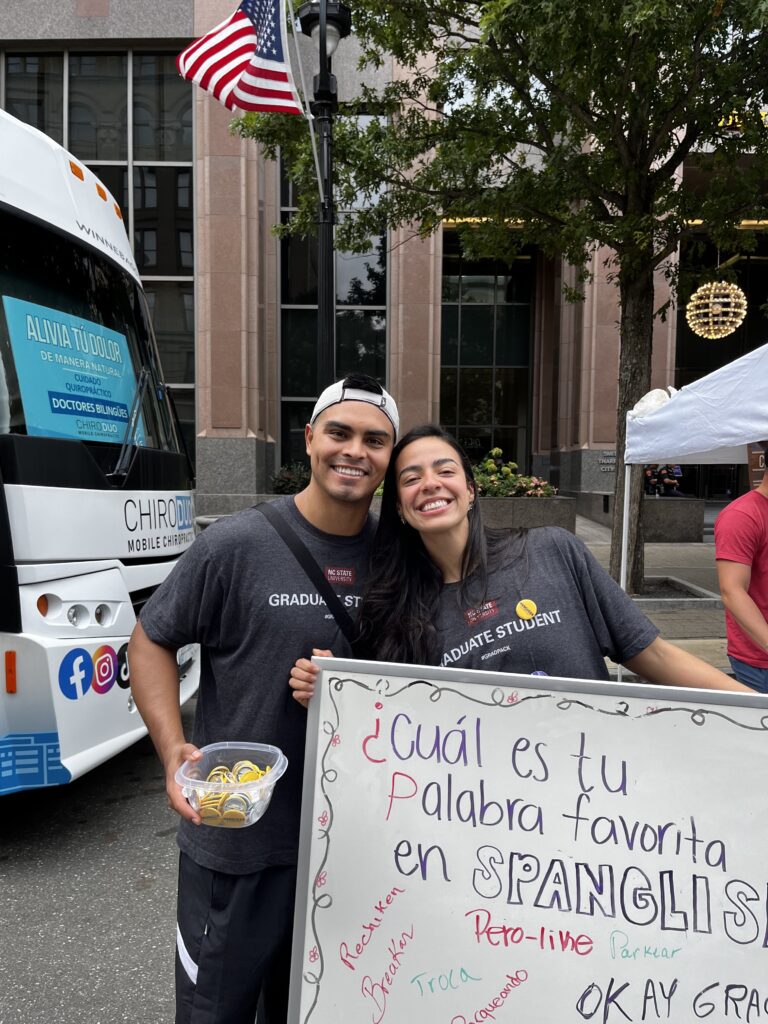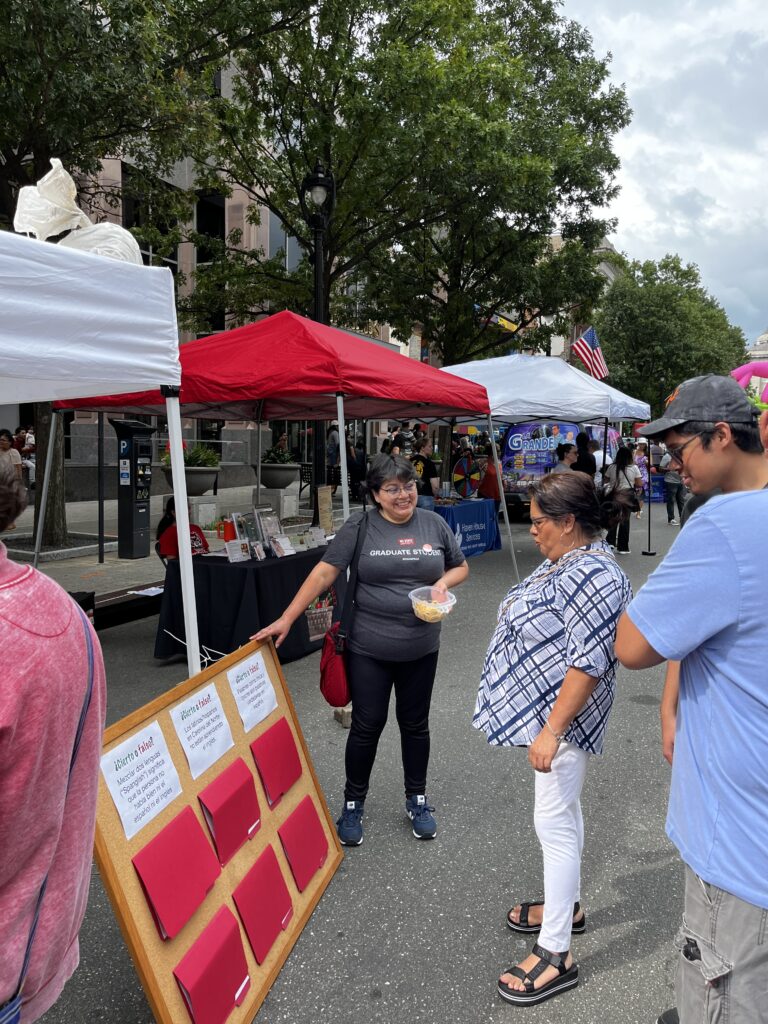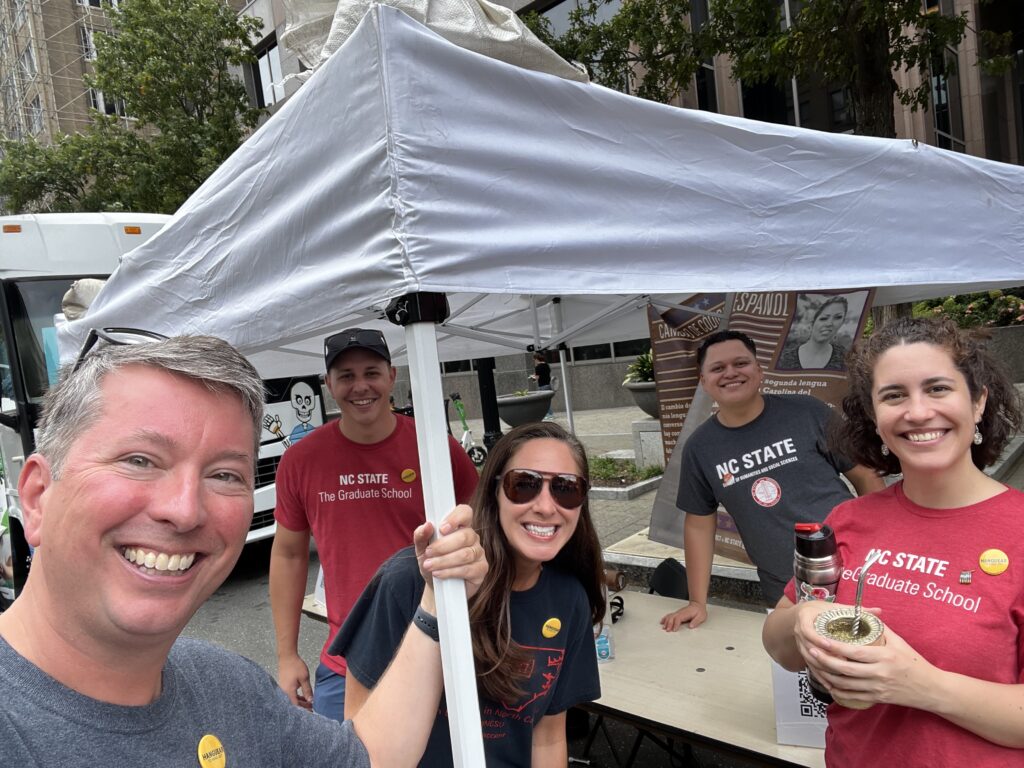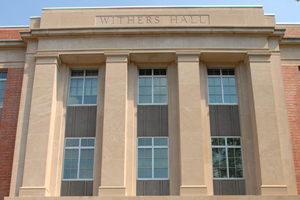Linguistic outreach at La Fiesta del Pueblo
World Languages & Cultures faculty and graduate students in Hispanic linguistics share insights from their research on Spanish in North Carolina and the benefits of being bilingual

Spanish is the second most widely spoken language in North Carolina, and the language used by the Latino residents of the state is changing due to influences from English, as well as due to contact between different varieties of Spanish. Hispanic linguistics faculty and graduate students in WLC are at the forefront of documenting and analyzing these changes, and for the past several years have been at La Fiesta del Pueblo in downtown Raleigh to share these insights, and to help people see the value in new and changing language forms.

According to Jim Michnowicz, WLC department head and professor of Hispanic linguistics, part of the outreach focus is to share research-based insights about bilingualism and bilingual speech. “There are a lot of myths out there, that English-influenced words aren’t ‘real Spanish’ or that using bilingual forms or mixing English and Spanish is detrimental to the future of the language”, said Michnowicz, “and we want to start a discussion about why these forms are valid and important identity markers for the Latino community in North Carolina”.

“Spanglish” is a term used in the community to describe a variety of different linguistic phenomena, and while not everyone approves of the influence of English on Spanish, bilingual forms and the word itself are gaining ground in the Latino community. Paula Dechima, an MA student in Spanish and Teaching English to Speakers of Other Languages (TESOL), states that it is rewarding to see that the public, particularly children, find value in their language. “I was struck by the happy faces when they saw the [favorite Spanglish word] board and recognized the words in Spanglish. Many of them spent a few minutes trying to remember a term so they could write it down and have it recorded as evidence that it exists. It was also very nice to see how the adults encouraged the younger ones to remember the words they use. I thought it was a good exercise for them to connect with their native language in a more entertaining way than just in Spanish class”.

This outreach is part of a wider collaboration between World Languages & Cultures and the Language and Life Project at NC State.

